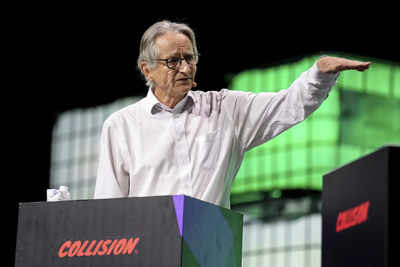British-Canadian professor Geoffrey Hinton was named one of the recipients of the 2024 Nobel Prize in Physics on Tuesday, October 8, alongside John Hopfield, for their significant contributions to machine learning. Often regarded as the ‘Godfather of AI’, Hinton, at 76, has had a remarkable career in artificial intelligence.
Hinton is well-known for his pioneering work in AI, particularly in neural networks, but there is another, lesser-known connection in his life, tied to his middle name, Everest.His middle name honours his great-great-granduncle, Sir George Everest, the British surveyor-general of India in the 19th century, after whom the world’s tallest peak, Mount Everest, was named.
This family legacy of achievement is a source of both inspiration and responsibility. While Sir George Everest made groundbreaking advances in geography and mapping, Hinton has made his mark in the world of AI, continuing the tradition of innovation.
Born in London in 1947, Hinton completed his early education in Bristol and went on to study at King’s College, Cambridge, where he graduated in 1970 with a Bachelor of Arts in experimental psychology. He later pursued a PhD in artificial intelligence at the University of Edinburgh, completing his thesis in 1978, which focused on machine vision and learning.
Sir George Everest, Hinton’s great-great-granduncle, played a crucial role in mapping large areas of the Indian subcontinent. His contributions to geographic measurement were recognised when Mount Everest was named after him in 1865, symbolising his achievements in exploration and measurement.
Carrying the name Everest has symbolic weight, linking Hinton to both a towering natural landmark and a history of exploration. While Sir George mapped the physical world, Hinton has explored the digital realm of artificial intelligence, creating neural networks that form the foundation of modern AI systems.
Hinton’s work in neural networks, which mimic the brain’s ability to recognise patterns, has revolutionised fields from speech recognition to autonomous vehicles. In recognition of his transformative contributions to science and technology, Hinton was awarded the Nobel Prize in Physics.
Although his field differs from geography, Hinton’s groundbreaking influence mirrors the trailblazing work of his ancestor. Both have pushed the boundaries of knowledge, leaving lasting legacies that transcend their respective fields.
In his own way, Hinton has upheld the spirit of innovation associated with the name Everest, making his impact in the technological world as far-reaching as Sir George Everest’s was in geography.
